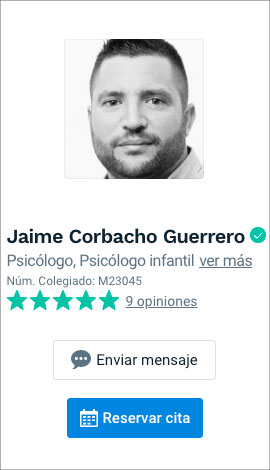Therapies





Table of contents
Neurolinguistic Programming (NLP) is a technique that seeks to improve communication, personal development and psychotherapy. through the study of mental processes, language and human behavior. In this article, we will explain what NLP is, how it works, its benefits, how to apply it and the different types of NLP therapy that exist.
What is NLP?
NLP was created in the 1970s by Richard Bandler, John Grinder and Frank Pucelik in California, United States, based on the observation and modeling of successful people in different fields. NLP is based on the idea that there is a connection between neurological processes (neuro), language (linguistics) and behavioral patterns learned through experience (programming).and that these can be modified to achieve specific goals in life.
NLP is based on the principle that each person has a unique way of perceiving and representing reality, which influences the way he/she thinks, feels and acts.. This representation is constructed through the five senses (sight, hearing, touch, smell and taste), which filter, select and distort the information we receive from the outside world. Thus, each person creates his or her own mental map of the world, which does not coincide with the real territory or with the map of other people.
NLP proposes that we can change the way we perceive and represent reality through the conscious and strategic use of language, both verbal and nonverbal.. Language is the means we use to communicate with ourselves and with others, and also to program our brain and nervous system. By changing our language, we can change our thoughts, emotions and behaviors.and thus improve our quality of life.
How does NLP work?
NLP works through the use of a series of techniques and tools that allow us to access, understand and modify our mental processes.our language and our behavior. These techniques and tools are based on four fundamental pillars:
- Results: NLP helps us to clearly define what we want to achieve in our lives, both personally and professionally. To do so, it invites us to set specific, measurable, achievable, relevant and time-bound (SMART) goals, and to design an action plan to achieve them.
- Sensory acuity: NLP teaches us to develop our ability to observe and detect the finer details of our environment and the people we relate to. Thus, we can pick up the verbal and non-verbal cues that tell us how the other person feels and what they think, and adapt our communication to their style and preferences.
- Flexibility: NLP encourages us to expand our repertoire of options and resources to face the different situations we face in life. To do so, it proposes that we step out of our comfort zone, experiment with new ways of doing things, learn from our mistakes and model the strategies of people we admire.
- Rapport: NLP helps us to establish a relationship of trust and harmony with ourselves and with others. To do so, it suggests using empathy, respect, active listening and calibration to create a climate of harmony and cooperation.
What are the benefits of NLP?
The benefits of NLP are many and varied.both personally and professionally. Some of them are:
- Bestto self-esteem and self-confidenceby helping to identify and modify limiting beliefs and enhance personal strengths.
- Encourages the development of social and communication skillsby teaching techniques for expressing oneself clearly, listening actively, persuading and negotiating.
- Increases learning capacity and creativityby facilitating access to internal and external resources that enable the acquisition of new knowledge and innovative problem solving.
- Enhances leadership and teamworkby fostering shared vision, motivation, feedback and conflict management.
- Facilitates change and adaptation to new situationsby providing tools to overcome fears, resistances and emotional blockages.
- Improves physical and mental well-beingby reducing stress, anxiety and depression, and promoting healthy eating, exercise and rest habits.
What are the most commonly used NLP techniques?
The set of methods and tools used in neuro-linguistic programming (NLP) are based on communication, language and the brain to improve personal and professional development.
Among the most widespread NLP techniques are:
- Anchoring: consists of associating an external stimulus (such as a word, gesture or sound) with a desired emotional state (such as confidence, calmness or motivation). In this way, the emotional state can be activated when needed by the external stimulus.
- The rapport: consists of establishing an empathic and harmonious connection with another person, adapting to his or her verbal and non-verbal language, breathing rhythm and body movements. In this way, trust is generated and communication is facilitated.
- Reframing: consists of changing the perspective or meaning of a situation or behavior, in order to find a positive aspect or a creative solution. In this way, a problem can be transformed into an opportunity or a limitation into a resource.
- Modeling: consists of observing and imitating the strategies, beliefs and behaviors of a person who has achieved success or excellence in some field. In this way, you can learn and replicate their skills and results.
Which therapy offers the best results in NLP?
NLP can be integrated with different psychotherapeutic approachesas the cognitive-behavioral therapy, systemic therapy, hypnosis o the coaching. However, there is no solid scientific evidence to support the efficacy of NLP as a therapeutic method on its own.
The results of NLP depend largely on the quality and experience of the practitioner applying it.as well as the client's motivation and collaboration. There is no single answer to the question of which psychotherapy offers the best results in NLP, as each case is different and requires a personalized assessment and treatment.
It is best to consult with a qualified psychologist or psychotherapist who can guide the client on the most appropriate type of intervention for his or her situation, taking into account his or her goals, needs and preferences. NLP can be a useful tool to complement the therapeutic process.provided that it is used with rigor and professional ethics.


